The following points will make it clear, that far from being spread by the sword, it was the inherent force of truth, reason and logic that was responsible for the rapid spread of Islam.
Islam has always given respect and freedom of religion to all faiths. Freedom of religion is ordained in the Quran itself:
“There shall be no compulsion in [acceptance of] the religion. The right course has become clear from the wrong.” (Quran 2:256)
The noted historian De Lacy O’Leary wrote:[1] “History makes it clear however, that the legend of fanatical Muslims sweeping through the world and forcing Islam at the point of the sword upon conquered races is one of the most fantastically absurd myths that historians have ever repeated.”
The famous historian, Thomas Carlyle, in his book Heroes and Hero worship, refers to this misconception about the spread of Islam: “The sword indeed, but where will you get your sword? Every new opinion, at its starting is precisely in a minority of one; in one man’s head alone. There it dwells as yet. One man alone of the whole world believes it, there is one man against all men. That he takes a sword and tries to propagate with that will do little for him. You must get your sword! On the whole, a thing will propagate itself as it can.”
If Islam was spread by the sword, it was the sword of intellect and convincing arguments. It is this sword that conquers the hearts and minds of people. The Quran says in this connection:
“Invite to the way of your Lord with wisdom and good instruction, and argue with them in a way that is best.” (Quran 16:125)
The facts speak for themselves
· Indonesia is the country that has the largest number of Muslims in the world, and the majority of people in Malaysia are Muslims. But, no Muslim army ever went to Indonesia or Malaysia. It is an established historical fact that Indonesia entered Islam not due to war, but because of its moral message. Despite the disappearance of Islamic government from many regions once ruled by it, their original inhabitants have remained Muslims. Moreover, they carried the message of truth, inviting others to it as well, and in so doing endured harm, affliction and oppression. The same can be said for those in the regions of Syria and Jordan, Egypt, Iraq, North Africa, Asia, the Balkans and in Spain. This shows that the effect of Islam on the population was one of moral conviction, in contrast to occupation by western colonialists, finally compelled to leave lands whose peoples held only memories of affliction, sorrow, subjugation and oppression.
· Muslims ruled Spain (Andalusia) for about 800 years. During this period the Christians and Jews enjoyed freedom to practice their respective religions, and this is a documented historical fact.
· Christian and Jewish minorities have survived in the Muslim lands of the Middle East for centuries. Countries such as Egypt, Morocco, Palestine, Lebanon, Syria, and Jordan all have significant Christian and Jewish populations.
· Muslims ruled India for about a thousand years, and therefore had the power to force each and every non-Muslim of India to convert to Islam, but they did not, and thus more than 80% of the Indian population remains non-Muslim.
· Similarly, Islam spread rapidly on the East Coast of Africa. And likewise no Muslim army was ever dispatched to the East Coast of Africa.
· An article in Reader’s Digest ‘Almanac’, yearbook 1986, gives the statistics of the increase of the percentage of the major religions of the world in half a century from 1934 to 1984. This article also appeared in The Plain Truth magazine. At the top was Islam, which increased by 235%, while Christianity had increased by 47%. During this fifty-year period, there was no “Islamic conquest” yet Islam spread at an extraordinary rate.
· Today the fastest growing religion in America and Europe is Islam. The Muslims in these lands are a minority. The only sword they have in their possession is the sword of truth. It is this sword that is converting thousands to Islam.
· Islamic law protects the privileged status of minorities, and that is why non-Muslim places of worship have flourished all over the Islamic world. Islamic law also allows non-Muslim minorities to set up their own courts, which implement family laws drawn up by the minorities themselves. The life and property of all citizens in an Islamic state are considered sacred whether they are Muslims or not.
Conclusion
It is clear, therefore, that Islam did not spread by the sword. The “sword of Islam” did not convert all the non-Muslim minorities in Muslim countries. In India, where Muslims ruled for 800 years, they are still a minority. In the U.S.A., Islam is the fastest growing religion and has over six million followers.
In his book The World’s Religions, Huston Smith discusses how the prophet Muhammad granted freedom of religion to the Jews and Christians under Muslim rule:
The Prophet had a document drawn up in which he stipulated that Jews and Christians “shall be protected from all insults and harm; they shall have an equal right with our own people to our assistance and good offices,” and further, “they shall practice their religion as freely as the Muslims.”[2]
Smith points out that Muslims regard that document as the first charter of freedom of conscience in human history and the authoritative model for those of every subsequent Muslim state.
 The religion of Islam includes a basic set of rules designed to protect the rights and freedoms of individuals and communities. It is a doctrine concerned with respect, tolerance, justice, and equality. The Islamic concepts of freedom and human rights are imbedded in and guaranteed by the Sharia (Islamic Law). Islam establishes a legal framework, and embodies a code of ethics, designed to protect the rights of an individual including his or her right to live in a secure community.
The religion of Islam includes a basic set of rules designed to protect the rights and freedoms of individuals and communities. It is a doctrine concerned with respect, tolerance, justice, and equality. The Islamic concepts of freedom and human rights are imbedded in and guaranteed by the Sharia (Islamic Law). Islam establishes a legal framework, and embodies a code of ethics, designed to protect the rights of an individual including his or her right to live in a secure community.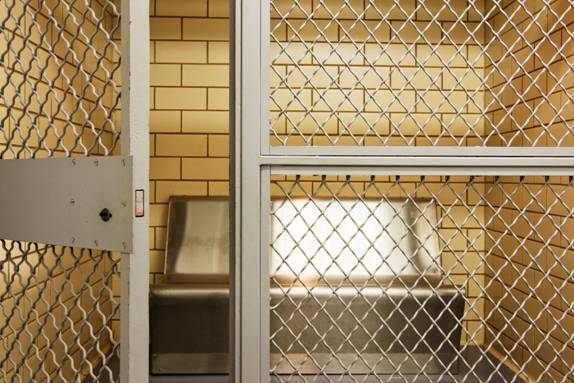 Security and stability are basic human needs, no less important than food and clothing. Without security and stability, a human being is not able to properly conduct his daily life, let alone come up with new ideas or contribute to the development of a high level of civilization.
Security and stability are basic human needs, no less important than food and clothing. Without security and stability, a human being is not able to properly conduct his daily life, let alone come up with new ideas or contribute to the development of a high level of civilization.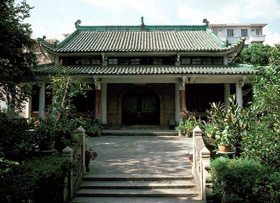 The ‘Great Mosque of Guangzhou’ is also known as Huaisheng Mosque which means ‘Remember the Sage’ (A Memorial Mosque to the Prophet) and is also popularly called the ‘Guangta Mosque’ which translates as ‘The Beacon Tower Mosque’. Huaisheng Mosque is located on Guantgta Road (Light Pagoda Road) which runs eastwards off Renmin Zhonglu.
The ‘Great Mosque of Guangzhou’ is also known as Huaisheng Mosque which means ‘Remember the Sage’ (A Memorial Mosque to the Prophet) and is also popularly called the ‘Guangta Mosque’ which translates as ‘The Beacon Tower Mosque’. Huaisheng Mosque is located on Guantgta Road (Light Pagoda Road) which runs eastwards off Renmin Zhonglu.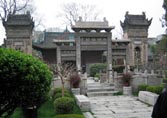 Its contemporary Da Qingzhen Si (Great Mosque) of Chang’an (present day Xi’an) in Shaanxi Province was founded in c.742 CE. It is the largest (12,000 sq metres) and the best early mosque in China and it has been beautifully preserved as it expanded over the centuries. The present layout was constructed by the Ming Dynasty in c.1392 CE, a century before the fall of Granada, under its (ostensible) founder Hajj Zheng He who has a stone tablet at the mosque in commemoration of his generous support, which was provided by the grateful Emperor.
Its contemporary Da Qingzhen Si (Great Mosque) of Chang’an (present day Xi’an) in Shaanxi Province was founded in c.742 CE. It is the largest (12,000 sq metres) and the best early mosque in China and it has been beautifully preserved as it expanded over the centuries. The present layout was constructed by the Ming Dynasty in c.1392 CE, a century before the fall of Granada, under its (ostensible) founder Hajj Zheng He who has a stone tablet at the mosque in commemoration of his generous support, which was provided by the grateful Emperor.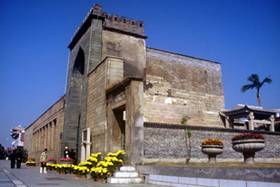 The Sheng-You Si (Mosque of the Holy Friend), also known as the Qingjing Si (Mosque of Purity) and Al-Sahabah Mosque (Mosque of Companions), was built with pure granite in 1009 CE during the Northern Song Dynasty (960-1127). Its architectural design and style was modeled on the Great Mosque of Damascus (709-15) in Syria thus making the pair the oldest extant Mosques to survive (in original form) into the twenty-first century.
The Sheng-You Si (Mosque of the Holy Friend), also known as the Qingjing Si (Mosque of Purity) and Al-Sahabah Mosque (Mosque of Companions), was built with pure granite in 1009 CE during the Northern Song Dynasty (960-1127). Its architectural design and style was modeled on the Great Mosque of Damascus (709-15) in Syria thus making the pair the oldest extant Mosques to survive (in original form) into the twenty-first century.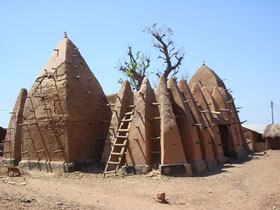 Muslim geographers and historians have provided excellent records of Muslim rulers and peoples in Africa. Among them are Al-Khwarzimi, Ibn Munabbah, Al-Masudi, Al-Bakri, Abul Fida, Yaqut, Ibn Batutah, Ibn Khaldun, Ibn Fadlallah al-’Umari, Mahmud al-Kati, Ibn al Mukhtar and Abd al-Rahman al-Sa’di. Islam reached the Savannah region in the 8th Century C.E., the date the written history of West Africa begins. Islam was accepted as early as 850 C.E. by the Dya’ogo dynasty of the Kingdom of Tekur. They were the first Negro people who accepted Islam. Trade and commerce paved the way for the introduction of new elements of material culture, and made possible the intellectual development which naturally followed the introduction and spread of literacy.
Muslim geographers and historians have provided excellent records of Muslim rulers and peoples in Africa. Among them are Al-Khwarzimi, Ibn Munabbah, Al-Masudi, Al-Bakri, Abul Fida, Yaqut, Ibn Batutah, Ibn Khaldun, Ibn Fadlallah al-’Umari, Mahmud al-Kati, Ibn al Mukhtar and Abd al-Rahman al-Sa’di. Islam reached the Savannah region in the 8th Century C.E., the date the written history of West Africa begins. Islam was accepted as early as 850 C.E. by the Dya’ogo dynasty of the Kingdom of Tekur. They were the first Negro people who accepted Islam. Trade and commerce paved the way for the introduction of new elements of material culture, and made possible the intellectual development which naturally followed the introduction and spread of literacy.